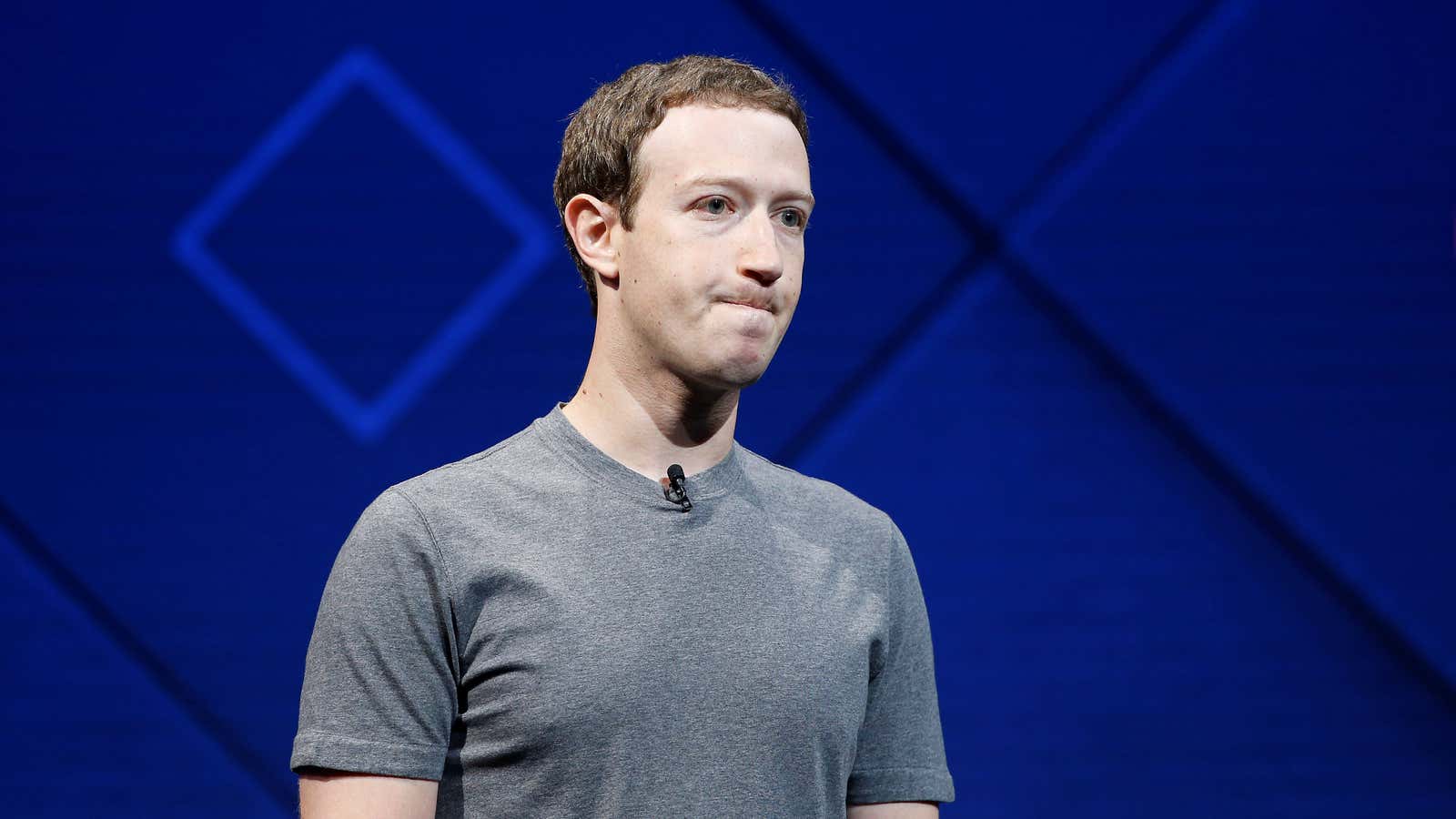Facebook’s stock price was down by more than 7% March 19, following a weekend of backlash against the company, after it was revealed that Trump campaign consultant Cambridge Analytica harvested the data of up to 50 million Facebook users without their permission.
The company has lost $42 billion in value since its close on Friday at the time of publishing.
Generally, Facebook’s business has been nearly invulnerable to political scandal, with the company posting record quarter after record quarter, despite revelations that Russia and other malicious actors were exploiting the platform. But the Cambridge Analytica story has already pushed authorities and lawmakers on both sides of the Atlantic to threaten action, raising the specter of regulation that could endanger its monopoly-like status, and scare off advertisers.
Analysts and observers are divided over the company’s future, with some more optimistic than others. Daniel Ives, an analyst at GBH, said in a note to investors that with more pressure from Washington, “modest changes to their business model around advertising and news feeds/content could be in store over the next 12 to 18 months.”
While the threat of regulation will be concerning to investors, Ives called it more of a “headline risk” that will dominate the news cycle for now, rather than a long-term game-changer, and added that he was not worried that the company’s “advertising fortress” is at risk.
Conversely, Stephen Guilfoyle at The Street advises investors not to buy on Facebook’s dipping price, warning that it might take a while for Facebook’s stock to swing back up.
Before the Cambridge Analytica news broke, market research firm eMarketer put out analysis that predicted that Facebook’s (and Google’s) share in the digital ad market in the US will be slightly falling in the next several years.
“Facebook’s user growth in the US has slowed down and is now about the same as that of internet users, while News Feed ad prices may be reaching their limit,” said in a release Monica Peart, senior forecasting director.
The good news for Facebook is that Instagram is only growing, and will surpass 5% of the US ad market this year (to Facebook’s 19.6%).
